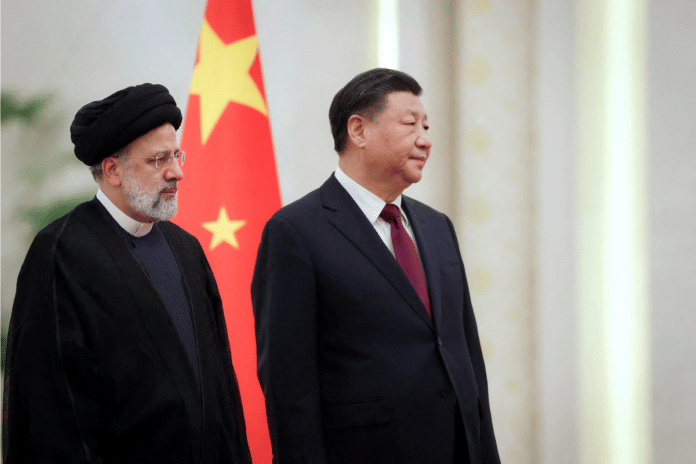
Thank you dear subscribers, we are overwhelmed with your response.
Your Turn is a unique section from ThePrint featuring points of view from its subscribers. If you are a subscriber, have a point of view, please send it to us. If not, do subscribe here: https://theprint.in/subscribe/
Last week we were greeted on national and international media with the news that hitherto sworn adversaries Saudi Arabia and Iran have agreed to restore diplomatic ties between them. China is said to have brokered the agreement, over a few days of what must no doubt have been patient and plodding tri-partite negotiations in Beijing.
Current international events cannot be understood unless their ‘big picture’ backdrop is clearly delineated – namely, the transition underway from unipolar to multipolar alignment of international affairs. Naturally, the dominant pole of the last several decades resists that transition, while newly emerging poles try to push the process along. The announcement made in Beijing – apart from having major implications in the Middle-East – must also be seen as a milestone in the ongoing transition to multi-polarity.
The Anglo-American modus operandi – very familiar to us in India! – relies exclusively on exploitation based on discord and division. While it cannot be anybody’s case that economic reasons are not important to China, the fact is that the agreement China brokered between Saudi Arabia and Iran does not smack of a strategy of discord and division. Quite the opposite, in fact; the agreement is based on reducing discord and division. Trade does not need discord and division; exploitation does.
The ‘international rules based order’ touted by the West – whatever that may be construed to mean – is definitely adding to international discord and division. That phrase is in fact no more than code for maintaining Western hegemony. We are expected to make believe that these are fair rules which even the West lives by. In truth, the touted rules are like weapons of war, wielded capriciously all around the world.
The weak point of the West seems to be staying power for the long game. The Taliban in Afghanistan have most recently exploited this weakness of the West. We may disagree with Taliban’s policies, but we must admit that they showed far greater staying power than the West did. One likes to think that staying power comes from courage of convictions.
So how does India fit into current global geo-tectonics? The glorious periods of Indian history have been periods of plenty. Our traditions, culture and philosophy developed largely during such ‘Golden Periods’, presided over by learned, valiant and generous kings. In modern language, we can say that during those long periods India was the fabled ‘land of milk and honey’.
At present, the phrase ‘land of milk and honey’ usually refers to the US. One is tempted to generalize that – in India, the US, or anywhere else – long periods of being ‘the land of milk and honey’ are not conducive to developing staying power for the long game. Hardship builds durability. If circumstances do not generate hardship, then discipline must – as in the armed forces.
No think-tank, ivy league university, cunning politician or talking head has – or comprehends in others – staying power for the long game. Like a chameleon, these entities can change colour quickly upon change of political conditions; their narrative changes by political season. Life of ease and comfort engenders illusions of superiority, within artificial bubbles of prosperity. A hundred clever theories may emerge from posh offices – but that life is not conducive to developing staying power for the long game.
The global transition to multi-polarity will be a slow and patchy process, which will likely stretch out over a couple of decades. The period will be marked by turmoil, conflicts, economic and energy disruptions et cetera. Of course every historic period is marked by conflicts, but the underlying geo-tectonics in this decade is very different from that of the previous century.
Today, at the beginning of the transition, there are people doubting that any such transition is underway. In the same way, ten or fifteen years from now, when the world will be almost unrecognizably multi-polar, there will be people denying that any transition ever took place. That is human nature. It is for the perceptive to perceive, and to plan with a long view.
With due respect – but no undue respect! – to the think-tanks, ivy league universities, cunning politicians and talking heads of the West, we submit that Russia, China and Iran are far more adept at the long game. They have the staying power. Show-off western entities of the type mentioned breed one-upmanship – but not staying power. One-upmanship thrives in the business of sound bytes and eyeballs – but it cannot win the long game.
The above is an inconvenient truth, certainly – but truth nonetheless. We in India need to wake up from servile imitation of the West and think for ourselves. Any superpower worth the label must have staying power.
Mummy, Mummy! This horrible person is asking me to introspect!
These pieces are being published as they have been received – they have not been edited/fact-checked by ThePrint.
Also read: SubscriberWrites:Trading in stock markets isn’t easy and enough


COMMENTS